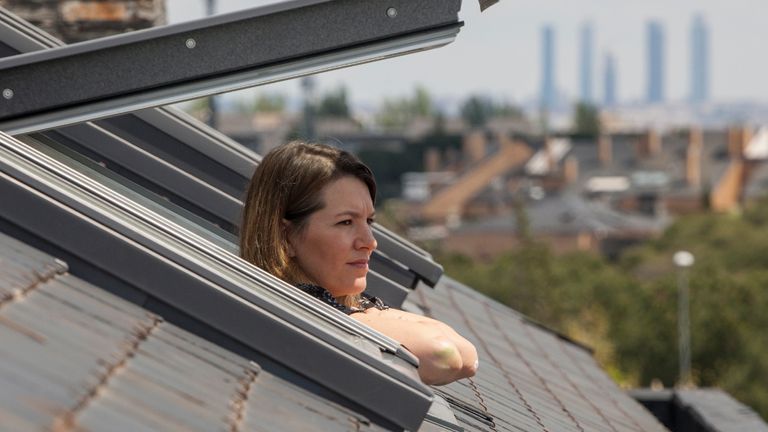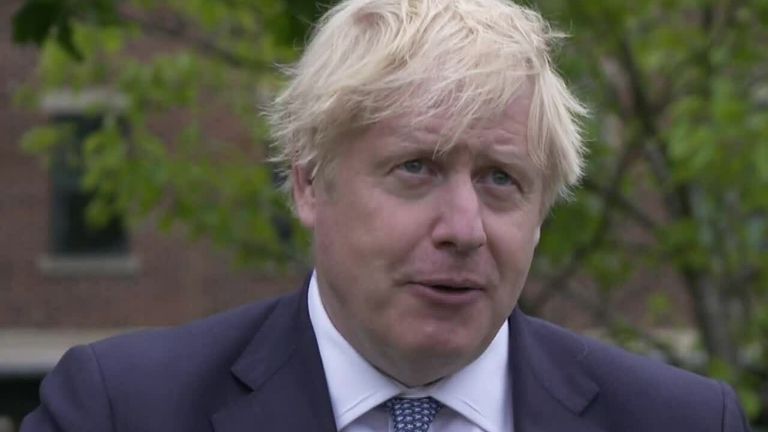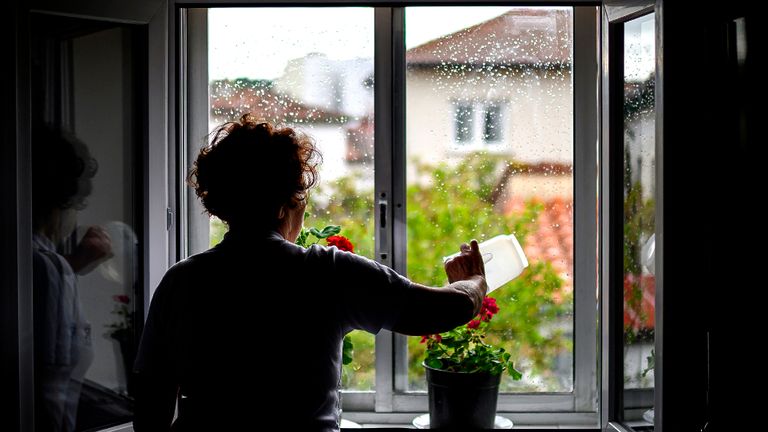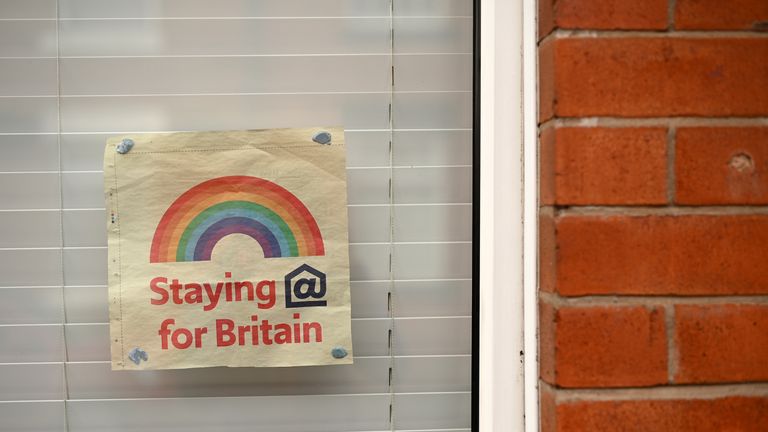Coronavirus: Why the self-isolation rule is changing and what impact it will have
Sky News explains why scientists have updated their advice what the World Health Organisation says.
Saturday 1 August 2020 16:19, UK
The UK is changing its rules on how long anyone with suspected coronavirus has to self-isolate for.
But why has the decision been made to increase the time from seven to 10 days and what effects might it have?
What were the old rules?
Until 30 July, if someone had symptoms or a positive COVID-19 test result they had to self-isolate for seven days.
And anyone who came into close contact with them would then also have to stay at home for 14 days.
So what are the new rules?
Now anyone with symptoms or a positive test must self-isolate for ten days.
The two-week period for those they've come into close contact with remains the same.
Why the change?
The UK's four top scientists - the chief medical officers of England, Scotland, Wales and Northern Ireland - have said evidence has "strengthened" to suggest that people might be infectious for longer than previously thought.
They still think that someone with the coronavirus is most likely to be able to pass it on just before and for a few days after they start showing symptoms - which are a new, continuous cough, fever or loss of taste or smell.
But they also said they now believe someone with the virus has "a low but real possibility of infectiousness between seven and nine days after illness onset".
Are there other reasons?
The scientists hinted the advice is also changing as the country gears up for winter, when a recent government-commissioned report warned there may be a second wave bigger than the first that kills 120,000 people.
They added that with a much higher number of tests available and given the gradual lockdown easing, "it is now the correct balance of risk to extend the self-isolation period from 7 to 10 days".
How does that differ from official World Health Organisation (WHO) advice?
The WHO has been telling countries since 27 May that people with symptoms should isolate for 10 days - plus at least three days once they stop displaying symptoms.
For those with no symptoms, it still says they should isolate for 10 days after receiving their positive test.
The WHO said at the time that evidence showed "it appears safe" for people to stop self-isolating after those periods because of the "rarity" of virus still left in the respiratory system.
What do other experts make of the decision?
Dr Tom Wingfield, senior clinical lecturer and honorary consultant physician at the Liverpool School of Tropical Medicine, said it moves the UK's position closer to the policies of "many other countries".
He said it was "particularly timely and welcome" given local flareups and warnings of the beginnings of a second wave growing in Europe.
"However, there will be downsides to the increase in the isolation period," he added.
"These include additional loss of income for UK households and difficulties accessing support for day-to-day activities such as shopping for vulnerable people.
"It is vital that these are proactively addressed to avoid further hardship."
Dr Julian Tang, honorary associate professor in respiratory sciences at the University of Leicester, has also said evidence isolation should last 10 days "has been around for some months already".
"There have been concerns about the former seven-day isolation cut-off for sometime now - because it just didn't tally with the evidence. Finally, now it does," he said.
And Rowland Kao, professor of veterinary epidemiology and data science at the University of Edinburgh, said lockdown easing will likely lead to "the opportunity for greater contact" between people.
"This is therefore a sensible precautionary measure to reduce the risk from potentially infected individuals in order to prevent more generalised restrictions from being necessary," he added.










